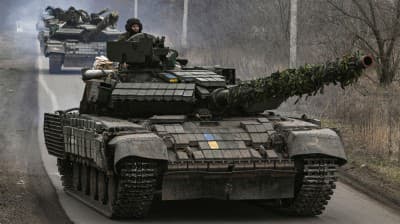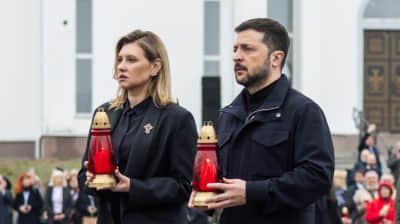EU imposes new personal sanctions against Belarus for internal repression

The Council of the European Union decided on 5 August to impose restrictive measures on 28 more people for their role in internal repression and human rights violations in Belarus.
Source: Council of the EU
Details: The restrictive measures were imposed on two deputy heads of the Main Department for Combating Organised Crime and Corruption of the Ministry of Internal Affairs of Belarus. This is one of the main bodies responsible for political persecution in Belarus, including arbitrary and illegal arrests and ill-treatment and torture of activists and members of civil society.
The lists published today also include various members of the judiciary, including prosecutors and numerous judges, who have handed down politically motivated sentences, including against citizens who protested against the sham 2020 presidential election or simply expressed their opinions against the Lukashenko regime.
In addition, restrictive measures are also applied to the heads of various penal institutions (prisons and pre-trial detention centres).
Sanctions have also been applied to a group of Lukashenko's long-time supporters who benefited from the regime. Among them are Irina Akulovich, CEO of the largest state news agency, the Belarusian Telegraphic Agency (BelTA); Nikita Rachilovsky, host of the Senate TV programme on Belarusian national TV channel STV and chairman of the Youth Council of the National Assembly of Belarus; and Dmitry Zhuk, former head of Lukashenko's press service and long-time CEO of BelTA.
Quote: "These regime propagandists willingly provided the Belarusian public with false information about repression perpetrated by the State authorities, spread disinformation produced by both Belarusian and Russian authorities and promoted hatred towards democratic opposition and civil society."
More details: In total, the EU's restrictive measures against Belarus currently apply to 261 individuals and 37 legal entities.
The assets of those on the list are subject to freezing, and EU citizens and companies are prohibited from providing funds to them. Individuals are additionally subject to an entry ban that prevents them from entering or transiting the EU.
These sanctions were adopted on the eve of the fourth anniversary of the fraudulent presidential election in August 2020.
Background:
- After the news of the historic prisoner swap between Russia and the West, Belarusian opposition leader Sviatlana Tsikhanouskaya mentioned her associates who are still behind bars in Belarus.
- In early July, Belarus reported the release of some seriously ill political prisoners.
- On the evening of 1 August, a large exchange of detainees took place between Russia and Western countries. In an unprecedented operation involving the Turkish intelligence service MIT, a total of 26 people were exchanged.
- In exchange for the release of political prisoners and Kremlin critics, Germany, the United States and partner countries released a convicted murderer and prisoners accused of spying for Russia.
Support UP or become our patron!






